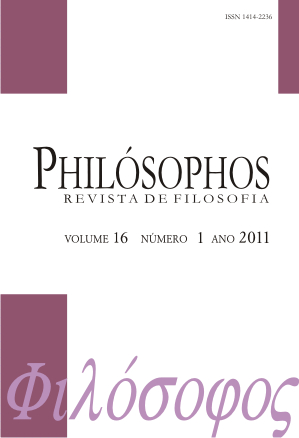NATURE AND LAW IN THE <em>INSTITUTAS</em> OF GAIO
DOI:
https://doi.org/10.5216/phi.v16i1.12552Keywords:
Roman Law, Natural Law, Gaius, nature.Abstract
In a very famous passage of his Institutes, the ancient jurist Gaius had divided the Roman Private Law in two parts: the Civil Law and the Law of People. The former is the Law created by the Roman people, whereas the latter is the Law followed by every nation.
Despite its classical origin, there is some disagreement among specialists about the right way to interpret this distinction. By the beginning of the 20th century, historians like Michel Villey had seen in this distinction the influence of Greek philosophy (Stoic but even Aristotelian) among the Roman jurists. But Levy and more recently Kelly have challenged this view and proposed that, in the roman period, philosophers and jurists had completely distinct notions of nature and natural law. The aim of this paper is not to prove the exact influence of Greek philosophy among jurists, but only to suggest that it is not possible to give an interpretation of the classical texts without ascribing to them a theoretical notion of the natural law.Downloads
Downloads
Published
How to Cite
Issue
Section
License
Authors who publish in this journal agree to the following terms:
- Authors retain copyright and grant the journal right of first publication, with the work simultaneously licensed under a Creative Commons Attribution License that allows others to share the work with an acknowledgement of the work's authorship and initial publication in this journal.
- Authors are authorized to enter into separate, additional contractual arrangements for the non-exclusive distribution of the journal's published version of the work (e.g., publishing in an institutional repository or as a book chapter), with an acknowledgement of its authorship and initial publication in this journal.















